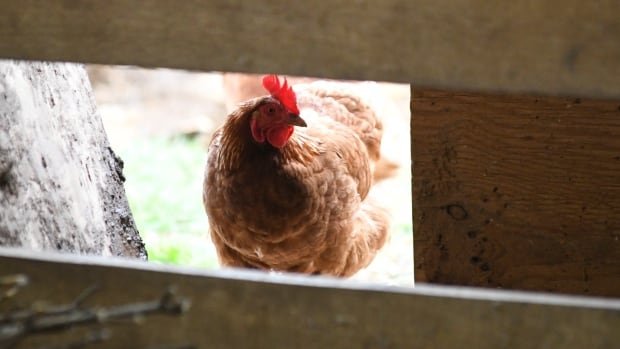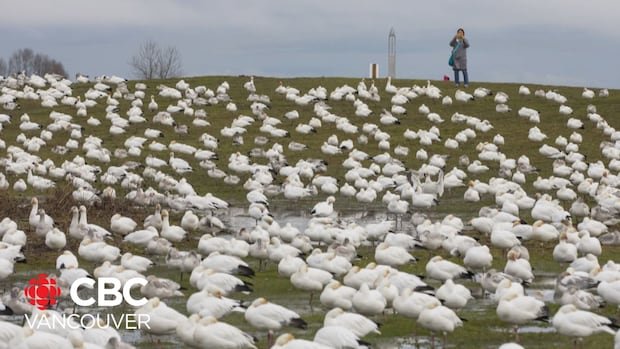Canada’s public health agency has confirmed the first case of avian influenza in the country in a B.C. teenager who is in critical condition.
In a statement, the Public Health Agency of Canada confirmed the Richmond resident was infected with the H5N1 virus and said it is the first “domestically acquired” case of the disease.
While officials in B.C. had been treating the case as presumptive, the results were confirmed Wednesday after laboratory testing at the National Microbiology Laboratory in Winnipeg.
Health officials continue to investigate how the teenager was infected and to screen other people they were in contact with, but say, so far, nobody else has tested positive for the disease, also known as bird flu.
Concerns around bird flu have heightened in recent years, with the virus resulting in millions of poultry across North America being culled.
Vaccine production ready to ramp up in case of pandemic
Health Canada also says it has authorized three influenza vaccines that could be used if bird flu became a pandemic.
The federal government also has an agreement with vaccine manufacturer GSK for domestic vaccine production that could be accelerated if needed, the Public Health Agency of Canada told The Canadian Press in an email.
There are no indications that H5N1 bird flu would spark a pandemic, but experts urged preparedness — including increased flu surveillance, early detection and vaccine availability.
Dr. Brian Conway the medical director of the Vancouver Infectious Diseases Centre joins The Early Edition
Human-to-human transmission rare
Human-to-human transmission of H5N1 — a strain of highly pathogenic avian influenza — is rare, with no evidence of sustained transmission, experts say. The majority of human cases in the United States and around the world have been due to contact with infected birds, farm animals or wildlife.
But the more people become infected by animals, the more opportunities the virus has to mutate and spread between humans, said Angela Rasmussen, a virologist at the University of Saskatchewan’s Vaccine and Infectious Disease Organization (VIDO).
“The longer a virus is able to get evolutionary experience with a particular host species, it’s going to continue to adapt to being in that host,” Rasmussen said.
“One of those adaptations would potentially be increased transmission and increased transmission efficiency.”
The Public Health Agency of Canada said by email that it is not stockpiling H5N1 vaccines because “the shelf-life of the vaccines is only up to two years.”
Keeping enough H5N1 vaccines on hand to immunize people at high risk because they come in contact with potentially infected birds and animals, such as agricultural workers, could be “a middle-of-the-road approach,” said Dr. Fahad Razak, an internal medicine specialist at St. Michael’s Hospital in Toronto.
Avoid contact with sick birds
At the same time, health officials are warning people to take precautions such as avoiding contact with dead or sick birds.
That’s a message Carolyn Law was given when a snow goose landed in her Richmond, B.C., backyard on Halloween.
After several hours, it had barely moved, but then it started bobbing its head repeatedly. About eight hours after she first saw the bird, it rolled over, began convulsing and died.
“It was quite a sad thing to see, actually — really frightening,” Law said.
Law said she called a wildlife rescue group and was told the symptoms suggested avian flu rather than a physical injury, but without testing, it couldn’t be confirmed.
“People who work with animals or in environments contaminated by animals should take precautions, including using other personal protective measures to reduce the risk of getting or spreading respiratory infectious diseases,” Health Canada said in a statement.
The agency said rare human infections only occur when a person closely interacts with an infected bird, and there is no evidence of human-to-human transmission of the virus. Its website says there is no risk of infection by eating thoroughly cooked poultry, eggs or meat.
Provincial Health Officer Dr. Bonnie Henry said in a news conference on Tuesday that humans may be infected by “inhaling the virus in aerosols, in droplets that get into the eyes, back of the throat, nose or deep into the lungs.”
Henry said it’s very likely that the B.C. teen’s infection took place due to an exposure to either a sick animal or something in the environment, but it is a “real possibility” that the source might never be determined.
Her office said Tuesday that people should report dead or sick poultry or livestock to the Canadian Food Inspection Agency animal health office and that encounters involving wild birds should be reported to the B.C. Wild Bird Mortality Line.
It said anyone exposed to sick or dead birds or who had been in contact with farms where avian flu was confirmed should watch for flu-like symptoms.
“If you get symptoms within 10 days after exposure to sick or dead animals, tell your health-care provider that you have been in contact with sick animals and are concerned about avian influenza,” it said. “This will help them give you appropriate advice on testing and treatment. Stay home and away from others while you have symptoms.”
Call authorities, avoid close contact
Brian Ward, an infectious diseases microbiologist at McGill University, said he couldn’t speculate whether the goose in Law’s backyard had influenza, but “it’s possible if there are some increasing number of ducks and geese found dead, then they’re very likely to have been infected with highly pathogenic avian influenza.”
Ward said it was concerning that authorities were unsure how the sick B.C. teenager caught H5N1, with Henry saying the teen had no known contacts with poultry farms.
But Ward said a human infection in Canada was “almost inevitable,” given the spread of the disease in recent years in North America and Europe. The U.S. Centers for Disease Control says there have been 46 human cases of avian flu in the U.S., although there has been no known human-to-human spread.
Ward advises people who encounter a dead bird to call authorities instead of disposing of it themselves.
“But, if it’s on your property and you want to dispose of it, then certainly wearing a mask and gloves, getting it into a plastic bag as soon as possible, and doing everything you can to avoid aerosols, makes a great deal of sense,” he said.




